In the first half of our 2016 interview with Jimmy Webb, the legendary songwriter/producer/performer talked about some of his most iconic compositions, including “MacArthur Park,” “By the Time I Get to Phoenix,” “Wichita Lineman” and “Worst That Could Happen.” In part two, he delves into the nuts and bolts of creating a hit song, Webb’s participation in the Monterey Pop Festival and the questionable future of the art of songwriting.
If you haven’t already read part one, you can find it here.
To get things rolling in part two, we first asked Webb, born August 15, 1946, his reaction to the announcement by another noteworthy songwriter/performer that his next release would be something of a tribute.
Bruce Springsteen has said he has been inspired by the music you made with Glen Campbell. What do you think about that?
Jimmy Webb: It’s very flattering. I was speechless for a minute. We never tried to create music that would be popular forever. I think that most of us—and I’m just speaking about my brothers-in-arms who were working in various studios and with various labels and various artists—we thought of our music as more or less disposable. It was the Summer of Love; it was flower children; it was the Monterey Pop Festival.
Were you at Monterey?
JW: I played in Johnny Rivers’ band, with the Wrecking Crew. Unfortunately, his performance was edited out of the Monterey Pop film. I’ve had people come up to me and say, “Hey, you lied! You weren’t at the Monterey Pop Festival.” I was there, but John Phillips and Lou Adler didn’t put me in the movie. There was this very snobby, very small-minded version of higher consciousness, a lot of snobbery in rock ’n’ roll, a lot of, “Well, this guy isn’t cool enough to be in our club.” So Johnny Rivers ended up on the cutting room floor. I think there’s a shot of me and Johnny getting off the plane at the Monterey Airport. You can spot me because I’m carrying a chime. We used an A note off of the chime rack in “Tracks of My Tears,” a cover that we did. I had a little wooden hammer and a chime. In the middle of the performance I had to hit this chime: “Tracks of my tears, 2-3-4-bang!” And the thing was, at the Monterey Pop Festival, I actually missed it.
You might have gotten into the film if you’d burned the chime with lighter fluid.
JW: I actually saw that moment [of Jimi Hendrix burning his guitar]. That was right before the Mamas and the Papas came on. A lot of people have said, and I think rightfully so, that Jimi walked away with the festival. There was really nothing left for the Mamas and the Papas. Nobody could believe it when he fired up the guitar. Backstage there was pandemonium. The fire marshals wanted to stop the festival right then, and somehow or other they [the producers] managed to keep the fire marshals off the stage.
I’m sure you always get asked this question but can you tell when a song is going to be a hit?
JW: The hits are in the ears of the listeners; it’s not in anybody else’s hands. I can imagine someone listening to “The First Time Ever I Saw Your Face” by Roberta Flack and saying, “That’s too slow. That’s not a hit.” A lot of it is so predictable, and “MacArthur Park” is an example of stepping out of the box just a little bit and all of a sudden people go crazy. They’ve got something different!
I produced Cher when she was the hottest television star in America—she was on the cover of Time magazine—and David Geffen and I picked the songs together. We were doing songs by Jackson Browne, James Taylor, Lowell George. We did some great contemporary standards. It was a beautiful album called Stars and it was D.O.A. You look at your artist on the cover of Time magazine and you think, this is gonna be a hit even if it’s a piece of shit! But that’s not true. It’s absolutely impossible. In essence, you’re rolling the dice every single time.
Listen to Cher sing “Love Hurts” from the 1975 Webb-produced Stars album
When you speak with young artists today, and they ask how they can get their music heard, what do you tell them? It’s such a different world now.
JW: I tell them that it’s a very difficult landscape and that technology has given with one hand and taken away with the other. There’s no way that the rates being paid by Pandora and Spotify are copacetic with a living wage for songwriters. I’ve been on the board of directors of ASCAP [American Society of Composers, Authors and Publishers] for 16 years, and we’ve dealt with this since Napster [a peer-to-peer file-sharing service charged with copyright infringement]. It’s the erosion of creator rights. It’s all about money. It’s such a bald-faced, ugly grab by the digital interests to really devalue copyright and make songs not as important, to make the writers less important than the producers, less important than the singers. They’re slowly turning the volume down until there aren’t any real songwriters anymore.
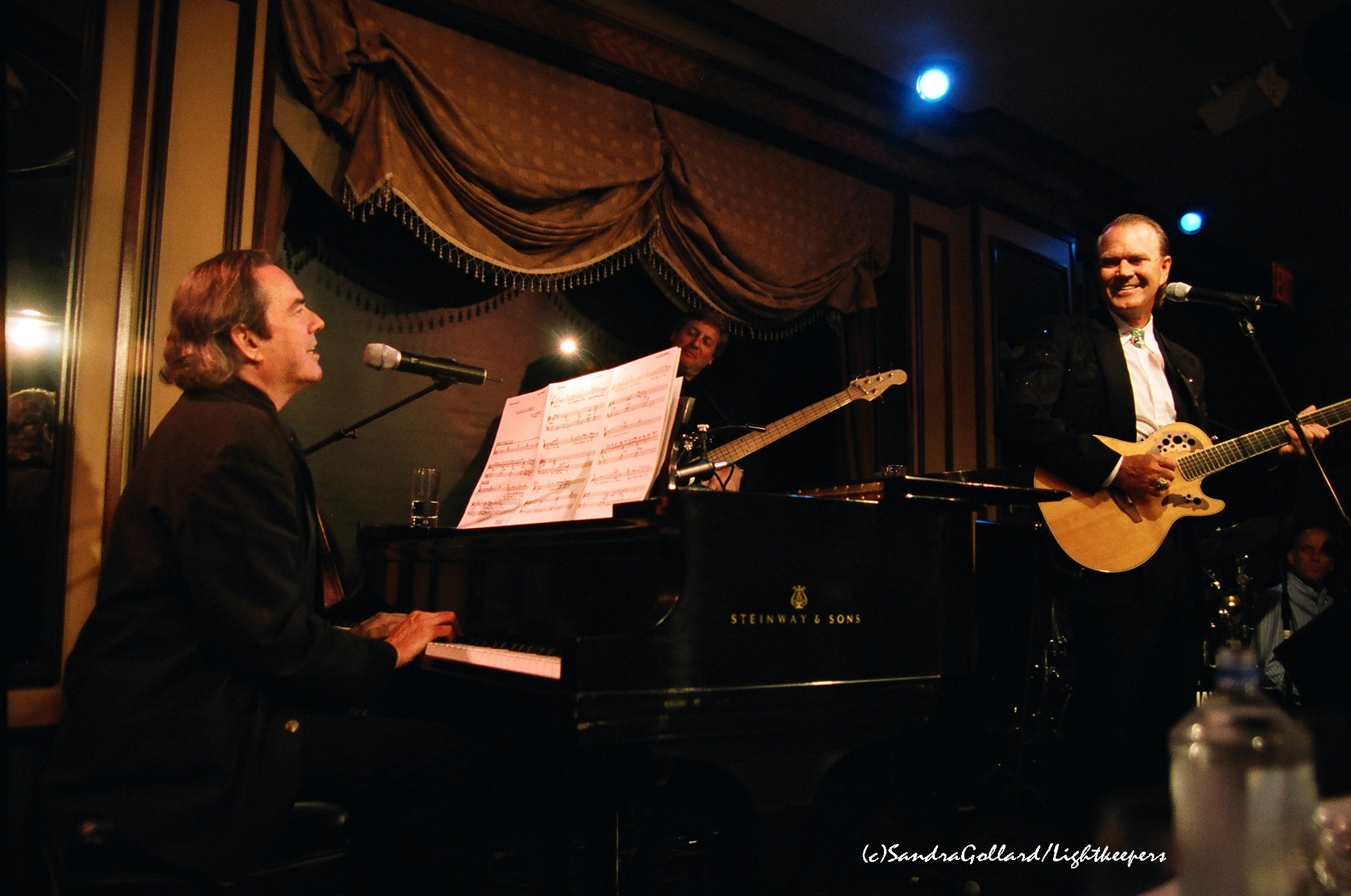
Webb and Campbell during their June 2005 run at Feinstein’s at the Regency, NYC (Photo: © Sandra Gillard/Lightkeepers; used with permission)
Does that mean that we will never see another Jimmy Webb or Randy Newman or Harry Nilsson?
JW: My hope is that there will be, and that there will be strong legislation to protect this art form. It would be as if somebody said, “We’re not gonna have movies anymore,” or, “We’re not gonna have ballet anymore,” or painters: “We just don’t do that anymore. We do everything on computer.” Nobody is invulnerable to this kind of enforced obsolescence. There is no reason why songwriters shouldn’t be making a living wage. It’s really an attack on the whole system.
My advice to young writers is to keep writing, write from the heart and write as much as you can. Adele is an example of someone who writes songs; there’s always a demand for a great song. I don’t think that’s something they can take away. When people hear a great song, somehow all that other stuff, that jumble of computerized nonsense, that whole school of music that is mass-manufactured by corporations…It’s the same thing as organic farming and going to the supermarket and buying packaged food off the shelf. Ultimately the audience has to decide what the audience wants. A lot of people write to me and say, “What’s happened to the music?” My response is, “You get what you pay for and you get what you insist on.” No one just gives you great music. They’ll give you trash.
Related: The story behind Glen Campbell’s recording of “Wichita Lineman”
Is there anything you still want to do that you haven’t yet?
JW: I’d still like to do a Broadway show. I think I have the gift that would enable me to do it. I’ve tried to do it several times and I’ve found that it’s an exceedingly difficult thing to do. Probably the most difficult thing to do in the entertainment world is to mount a Broadway show. We’re talking about years and years, sometimes eight or 10 years. My time is limited so I’m very cagey about getting involved in anything that isn’t going to happen.
What about making another solo album?
JW: Yeah, my next project is a solo album. I’ve probably got the songs half-written; some are a little bit further along. As unlikely as it may seem, I’m touring heavily for a guy my age. I’m doing between 60 and 70 events a year. My audience is actually growing, not eroding. I’m not a Luddite. I have an iPhone 6s and I know how to use it. I’m very active on social media and I have a really friendly, communal website where people share tapes and post videos. It’s like a family.
Watch Webb sing one “MacArthur Park” in this undated video
Webb published a memoir in 2017 called The Cake and the Rain. Order it here.

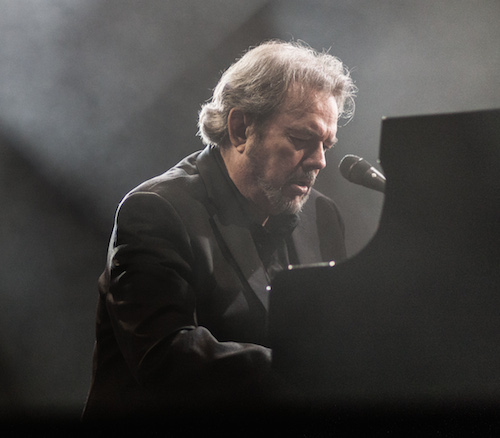
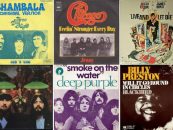
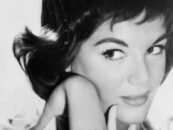
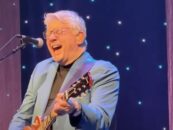


3 Comments so far
Jump into a conversationGreat interview….thanks, Jeff!
Jimmy Webb is a real gentleman and a champion of songwriting, performing, and entertaining. I saw him from the front row of a small venue. He autographed his CDs and we chatted about how larger than life I thought he was. What a great time I had with every song he played and sang.
Great interview with an icon of music. I have always been in awe of song writers.The really great ones make it look so easy. As if. To paraphrase Bob Dylan ” Sad-eyed lady of the lowlands, try writing something like that” Yeah, right. Thanks again.